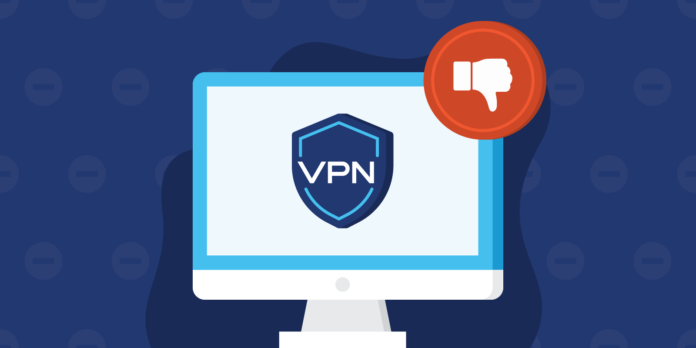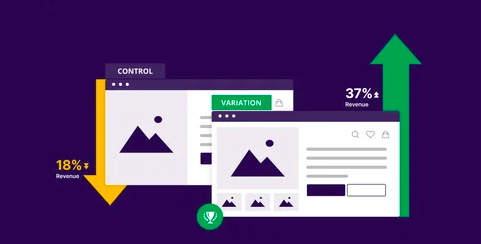If you are an avid internet user, then you must have used a VPN for a private browsing experience. There are two main types of VPN services: individual and corporate. Both types have their own pros and cons. The main difference between an individual and corporate VPN is the number of users that it can serve. An individual VPN is great for users who want to keep their online activity private. It can also be used for online anonymity. However, it is best to opt for a corporate VPN if your business requires an exclusive IP address for employees and contractors. When deciding between corporate and individual VPNs, it’s important to know how the two differ.
What is a Corporate VPN?
A business VPN is a type of virtual private network, commonly used to connect branch offices and remote workers. It also provides secure access to corporate networks corporate VPN is usually a unified cloud-based platform. This type of VPN provides granular user-access control and analytics. A corporate VPN is much more secure than an individual VPN.
A corporate VPN is also called Business VPN. It allows team members to access a private network without connecting to an open public network. The benefit is that employees can work on the network without having to share sensitive information. A Business VPN connects all of the team members to a single server and keeps confidential data out of the hands of unauthorised individuals. The downside is that it leaves web traffic vulnerable to attack. A corporate VPN will give you more secure connections and provide greater peace of mind than an individual VPN.
A corporate VPN is a great option for businesses that operate in several locations. The benefits include a global account for all employees, and administrators control all the settings for each user. As a result, business VPNs are more expensive than consumer VPNs. However, even small businesses can afford to use them.
What is Individual VPN?
An individual virtual private network (VPN) can protect your computer from cyber criminals. You should be extra cautious when using public Wi-Fi networks. Hackers often use free networks to intercept the information. A personal VPN can keep your connection secure even when you’re not at home. A VPN also helps protect your information from malicious websites. You can get a free VPN for iOS and macOS. You can choose between free and paid VPN plans.
You may have a home Wi-Fi connection, but using it without a VPN is risky. Public Wi-Fi is not secure and criminals can access your data. VPNs protect your data by encrypting your internet traffic so it’s inaccessible to them. This way, you can feel more secure when browsing the internet. And personal VPNs are also easy to use. You can unblock geo-restricted content with a few clicks.
VPNs are useful for business and personal use. A personal VPN helps you access websites without being tracked by your ISP. While a business VPN is used for business purposes, it has different benefits. Individual VPNs can help you bypass geo-restrictions and access sensitive office resources from remote locations. A personal VPN is a must-have if you’re concerned about your privacy online.
What an Individual VPN is Used For?
There are several reasons to use a VPN, including to protect your privacy.
- One example is to ensure that your browsing history is private. Your ISP may store your browsing history for a year or more, or sell your browsing history to the highest bidder. A VPN can protect your browsing history by using a different IP address, which does not belong to you. However, even if you are using a private computer, your search history can be viewed by other people, including employers and schools.
- Another reason to use a VPN is to avoid government restrictions. Depending on where you live, your government may censor certain websites. Using a VPN to avoid these restrictions allows you to access the content you want without worrying about censorship. In addition, a VPN lets you access websites in other countries where you don’t need to comply with censorship laws. This can be a valuable benefit for those seeking information.
- Another reason to use a VPN is to protect yourself from cybercrime. If you are outside your country, streaming services may not be available, or you may be subject to data throttling. Using a VPN will prevent these restrictions and give you total privacy on the web. You can watch movies, television shows, and even online games that you wouldn’t otherwise be able to find in your local country.
What a Corporate VPN is Used For?
A Corporate VPN is useful in a number of ways.
- It allows remote employees to access the internal network without going through the public internet, which is susceptible to on-path attacks.
- Additionally, a business VPN can provide enhanced security by encrypting all data that is transferred over the network. This ensures that sensitive data is not accessible by unauthorised parties.
- A business VPN also allows remote employees to access company resources securely and conveniently from anywhere they have a connection to the internet.
- The main purpose of a business VPN is to provide secure access for employees to the internet. A VPN establishes a secure connection between two devices, preventing third-party hacking and data theft.
- VPNs are particularly useful for remote employees who work on unprotected networks. The encryption of business VPNs is also an essential part of the security of a company’s internal network. Therefore, a business VPN should be installed on all company computers and mobile devices.
Personal VPN vs. Corporate VPN – Differences
While both personal and corporate VPNs offer similar security and privacy benefits, there are differences between the two.
- A personal VPN is primarily intended for a single user, while a Corporate VPN is for a group of users.
- While both personal and business VPNs can offer similar security and privacy features, the two are not exactly the same.
- While some personal VPNs have mobile versions, these are not personal VPNs. Personal VPNs are a subset of business VPNs, while mobile VPNs are a special type of business VPNs designed to allow individual users to access the network from their phones. A Corporate VPN can connect two offices on different sides of a city or even two different coasts.
- A corporate VPN is designed to protect the company’s network against cyberattacks. It extends the corporate network across the internet and transforms travelling data into encrypted form. A business VPN can support hundreds of simultaneous connections, while a personal VPN has a limit of two. If you’re using one VPN for your business, it’s best to sign up for a plan with unlimited connections.
Best VPNs for both Personal & Business use
While there are many options for VPN services, some of them are more secure than others. Here are some of the best VPNs for business and personal use.
- CyberGhost VPN is a good option with reasonable pricing and a 45-day money-back guarantee.
- VyprVPN, owned by Golden Frog, is also a good choice since it has its own infrastructure and doesn’t have any issues with third-party providers.
- Private Internet Access VPN has great coverage of the US.
- Astrill VPN is one of the best offering $12.50 per month for a subscription.
The Bottom Line
There are many different types of VPN services, and choosing the right one will depend on the amount of data you need to protect. You may be able to save money if you choose a one-year plan instead of monthly fees. But, if you’re on a budget, monthly plans aren’t as cost-effective as yearly plans. The best VPN for business needs will allow you to connect up to ten devices at once, which can be extremely useful if your company has many employees using the same account.































